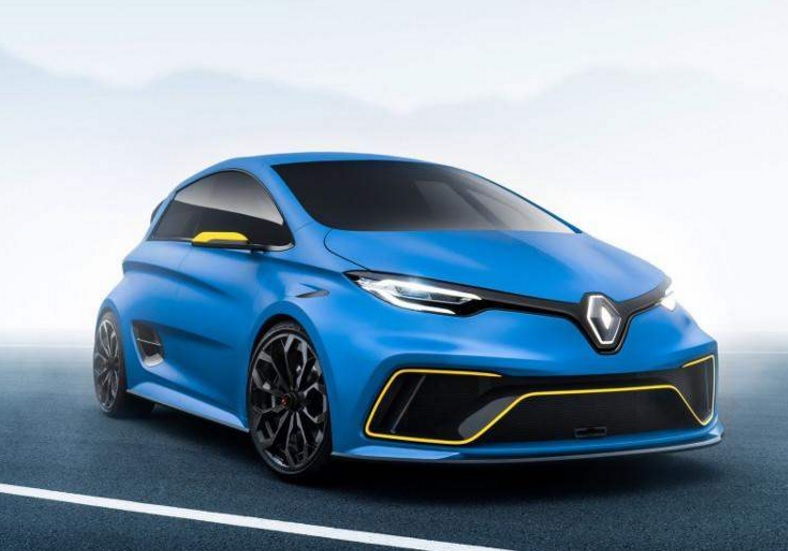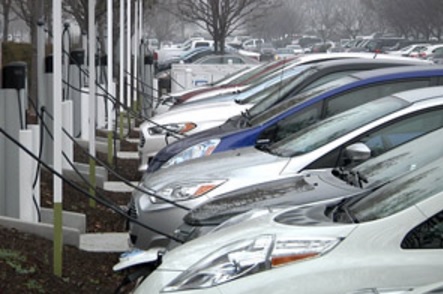Banning fossil-fuel powered vehicles: France will be banning the sale of gasoline- and diesel- powered vehicles by 2040, said Ecology Minister Nicolas Hulot on Thursday. Hulot was speaking on France’s commitment to honor the Paris climate agreement now that President Donald  Trump has pulled the U.S. out of it. France aims to be carbon neutral by 2050 to honor the agreement. He acknowledged that stopping sales of fossil-fuel powered vehicles would be a “revolution,” solutions are available and French automakers would be up to the task. Typical to markets around the world, electrified vehicles only make for a small share of total vehicle sales. During the first half of this year, gasoline and diesel vehicles made for 95.2% of new vehicle sales in France; hybrids made up about 3.5% and plug-in electrified vehicles made up about 1.2% of the market. The Renault Zoe, seen in this image in its e-Sport Concept version, has been a top seller in France and throughout Europe.
Trump has pulled the U.S. out of it. France aims to be carbon neutral by 2050 to honor the agreement. He acknowledged that stopping sales of fossil-fuel powered vehicles would be a “revolution,” solutions are available and French automakers would be up to the task. Typical to markets around the world, electrified vehicles only make for a small share of total vehicle sales. During the first half of this year, gasoline and diesel vehicles made for 95.2% of new vehicle sales in France; hybrids made up about 3.5% and plug-in electrified vehicles made up about 1.2% of the market. The Renault Zoe, seen in this image in its e-Sport Concept version, has been a top seller in France and throughout Europe.
Terrafugia flying car maker gets backing: Chinese automaker Geely, owner of Volvo Cars, just purchased startup flying car maker Terrafugia. The startup was launched by a group of MIT alumnae and is considered to be the furthest along in the flying car space. The company last year won a certification from the Federal Aviation Administration that would make it easier for owners to someday drive the cars on land and air. One of Google’s founders, Larry Page, has invested a lot in other flying car startups, while Uber and airplane manufacturer Airbus have also joined the race. But it’s not really a flying car, the company said. “Don’t think of it as a car that flies. Think of it as a plane that drives,” Carl Dietrich, CEO of Terrafugia, told TheDetroitBureau.com when the concept made its debut at the New York Auto Show in 2012.
PEV fees increasing: More states are adding fees for purchasing plug-in electrified vehicles, with the number totaling 13 that have passed or enacted such fees. Georgia, Washington, Wyoming, Idaho, Colorado, Missouri, Nebraska, North Carolina, and Virginia had previously enacted PEV fees. West  Virginia, Michigan, Minnesota, and California, have enacted new fees this year. Six other states have introduced legislation this year that would require PEV owners to pay a separate fee, including Indiana, South Carolina, Kansas, Tennessee, New Hampshire, and Montana. Vermont and Oregon are considering a fee based on vehicle miles traveled, rather than fuel type, but these rules may not pass through. PEV fees have been passed to pay for more transportation infrastructure upgrades, and to make up for lost tax revenue that PEV drivers don’t have to pay in gasoline and diesel taxes. Incentives are being added to get consumers to buy these cars, but the fees are mostly being charged on an annual, recurring basis.
Virginia, Michigan, Minnesota, and California, have enacted new fees this year. Six other states have introduced legislation this year that would require PEV owners to pay a separate fee, including Indiana, South Carolina, Kansas, Tennessee, New Hampshire, and Montana. Vermont and Oregon are considering a fee based on vehicle miles traveled, rather than fuel type, but these rules may not pass through. PEV fees have been passed to pay for more transportation infrastructure upgrades, and to make up for lost tax revenue that PEV drivers don’t have to pay in gasoline and diesel taxes. Incentives are being added to get consumers to buy these cars, but the fees are mostly being charged on an annual, recurring basis.



